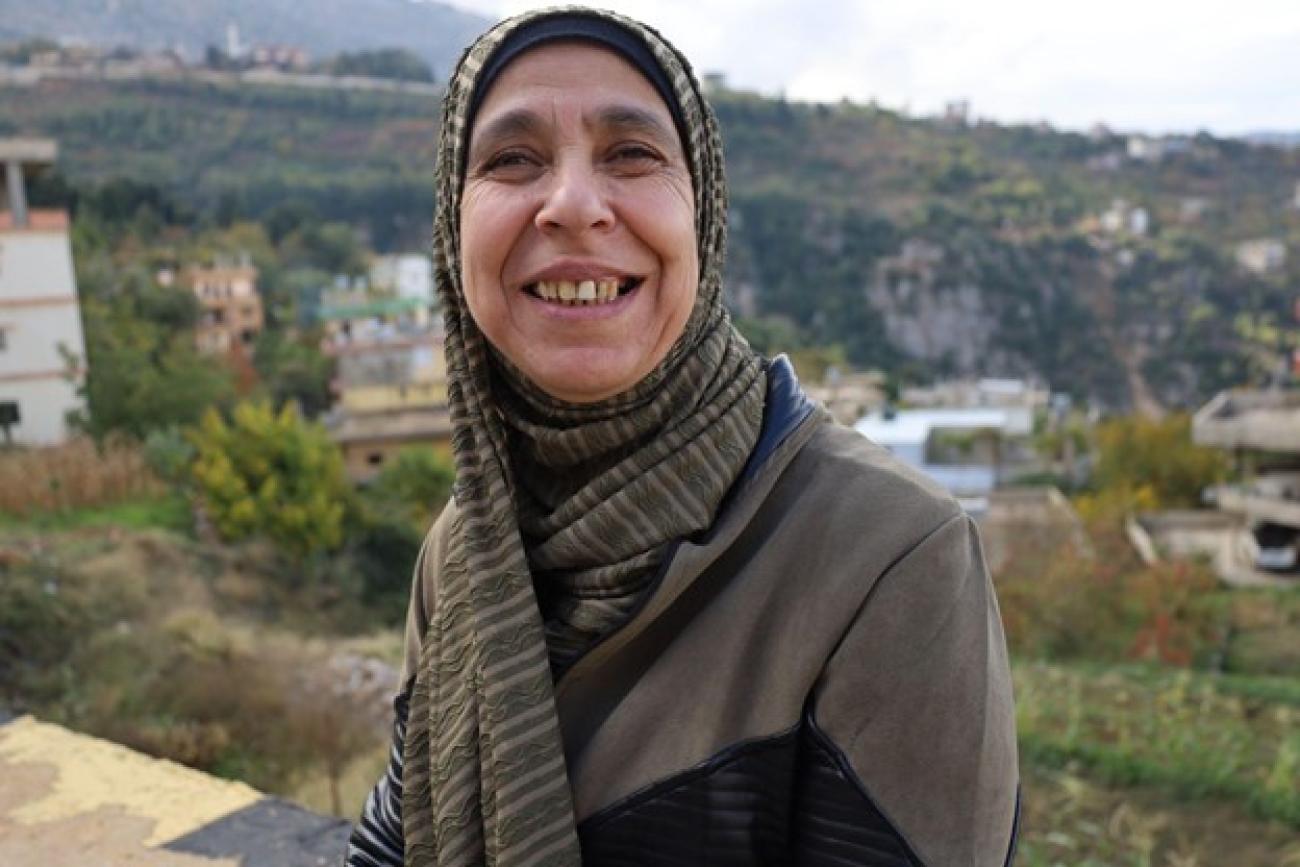Ramzieh Hammoud, 52, is a Lebanese farmer from Nemrine in Akkar, the Northmost governorate of Lebanon, 119 Km from Beirut. At 33, Ramzieh faced the tragedy of losing her 3-year-old son to a fatal fall. Devastated, she resorted to agriculture to cope with her grief in her own way and found hope in growing life in soil.
Ramzieh has recently joined the business planning training provided for women working in the fruits, vegetables, and nuts value chains in the North of Lebanon, by the Lebanese League for Women in Business (LLWB), a non-profit association that aims to support women in business and women entrepreneurs. Supported by UN Women, this training is part of the UN Productive Sector Development Programme, generously funded by the Government of Canada and implemented by six United Nations entities.: FAO, UNIDO, UNDP, UNICEF, ILO, and UN Women.
My son was playing with his friends on the rooftop of our house. They were running around and playing in a pile of sand when my son slipped and fell from the rooftop to his death.
For months, I could not sleep or stop crying. I could not fathom it; how could my baby boy, who was just eating the cheese sandwich I made for him, not sleep beside me anymore? I was distraught and devastated. My husband was a great support. We grieved together and helped each other cope with the huge loss and the overwhelming feeling of guilt.
Working in agriculture got me through grief. I have been working as a farmer for more than 30 years. Since I was a young girl, I would wake up at 6 AM during the summer and spend my time in the field, sowing, cultivating, and harvesting seasonal fruits and vegetables. We grew tomatoes, lettuce, cabbages, apples, pears, and strawberries, among others.
While still mourning, I began planting seeds and watching new life grow in front of my eyes. Seeing fruits and vegetables come alive helped me survive the agony. Planting and harvesting strawberries are my favorites. I use them in everything: in milkshakes, cake, and even salads.
Working the land wearing my rubber boots or soiled clothes, I would hear my neighbors' snarky remarks. They would say: “are you done being a man today?” Sometimes it bothers me, but most times, it doesn’t, because I am convinced that working is never shameful. I am proud of myself and everything I have achieved so far.
I was excited to join the business planning training provided by LLWB because I believed it would broaden my knowledge and skills in the agri-food sector. It did this and empowered me at different levels, as I have become more vocal, and more self-confident to express openly my opinions and views. I also realized that I am experienced in my field and that what I think matters. I developed memorable friendships, and I found a community with similar experiences working in agriculture.
During the five-day training, we learned how to lead, to work in a team, and to deal with interpersonal and group conflicts. We were also taught how to create a personal business image for our products, and how to network. We also learned sales techniques.
This training has encouraged me to start my own project: a homemade food store serving Akkar and different regions in Lebanon. I want everyone from all over the country to have a taste of Akkar through organically cultivated and produced food. I am hopeful and have ambitious ideas for the future, and I cannot wait to implement them. From grieving the loss of a child to starting a new agri-food business, I stand proud of what I have achieved.”
Ramzieh is one of 600 women working in agriculture and agri-food and who took part in UN Women’s training on leadership, personal development, managerial skills, and business. The project “QEWA- Qualifying and Empowering Women in Agriculture” is delivered by the Lebanese League for Women in business under the UN 3-year Productive Sector Development Programme and funded by the Government of Canada. Launched in June 2020 and running till June 2023, the program, being implemented by a consortium of 6 UN agencies, aims to support gender-responsive job creation and to help create economic opportunities in the agricultural and agri-food sectors in Lebanon.




